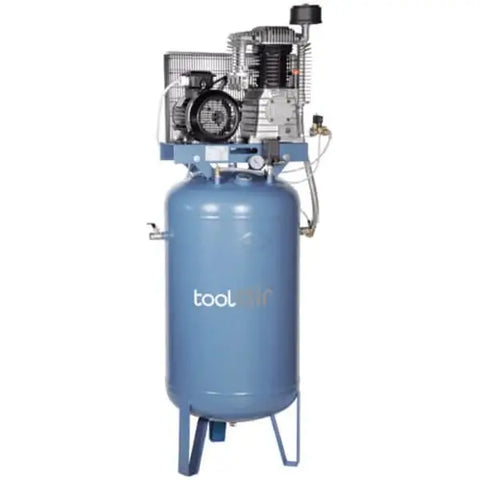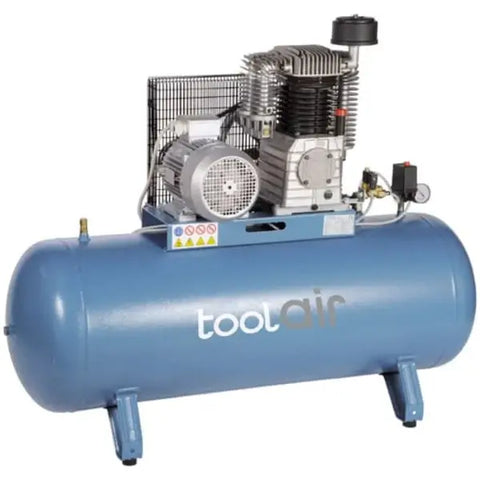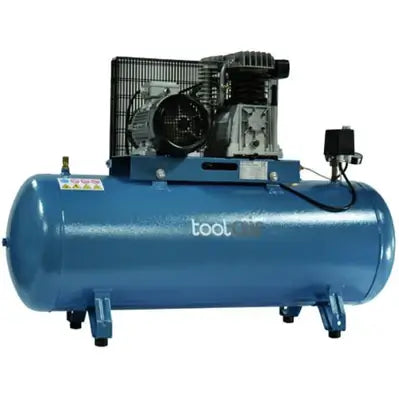
Are Air Compressors Dangerous? Safety Tips & Insights
Welcome to our guide on air compressors and safety tips for their operation. While air compressors are incredibly useful tools, it's important to recognize that they can pose potential risks if not used correctly. In this article, we will explore the dangers associated with air compressors and provide valuable insights to help you operate them safely.
Whether you're using an air compressor for industrial purposes, DIY projects, or automotive repairs, it's crucial to prioritize safety. By understanding the potential hazards and following proper safety guidelines, you can minimize the risks and ensure a secure working environment.

Key Takeaways:
- Air compressors can be dangerous if not used correctly.
- Understanding the risks associated with air compressors is essential.
- Follow safety guidelines to prevent injuries and accidents.
- Proper maintenance and the use of safety equipment are crucial.
- Create a safe working environment to minimize potential dangers.
Understanding the Risks of Using Air Compressors
When it comes to utilizing air compressors, it's essential to be aware of the potential dangers they pose. Failure to understand these risks can result in serious accidents and injuries. In this section, we will explore the various hazards associated with the use of air compressors.
High Pressure
One of the main risks of using air compressors is the high pressure they generate. The force exerted by compressed air can cause severe injuries if not properly controlled. It's crucial to exercise caution when working with pressurized air to avoid accidents or mishaps.

Compressed Air-Related Injuries
Another significant hazard of air compressors is the potential for compressed air-related injuries. When directed towards the skin, compressed air can cause abrasions, cuts, and even penetrative wounds. Additionally, if the compressed air enters the body, it can lead to serious health complications.
Importance of Safety Guidelines
In order to mitigate the risks associated with air compressors, it is vital to understand and follow safety guidelines. These guidelines outline the necessary precautions to ensure safe operation and minimize the likelihood of accidents. Ignoring or bypassing these guidelines can result in severe consequences.
- Always wear appropriate personal protective equipment (PPE), such as safety goggles, gloves, and ear protection.
- Maintain a safe distance from operating air compressors to avoid injury from flying debris or accidental discharges.
- Regularly inspect and maintain the equipment to identify any potential issues or malfunctions.
- Properly secure all connections and hoses to prevent leaks or sudden disconnections.
- Train all personnel in the safe operation and usage of air compressors.
By following these safety guidelines, individuals can significantly reduce the risks associated with air compressors and create a safer working environment.
Safe Operation of Air Compressors: Injury Prevention
When it comes to using air compressors, prioritizing safety is paramount. Compressors can pose potential dangers if not operated correctly, but by following proper guidelines and taking necessary precautions, individuals can ensure a safe working environment and prevent compressor-related injuries.
Here are some essential safety guidelines for the safe operation of air compressors:
- Regular Maintenance: Conduct regular inspections and maintenance checks to ensure the compressor is in good working condition. This includes checking for leaks, damaged hoses, and worn-out parts. Maintaining the compressor's optimal performance reduces the risk of accidents and malfunctions.
- Use Safety Equipment: Always wear appropriate personal protective equipment (PPE), such as safety glasses, ear defenders, gloves, and steel-toed shoes, when operating the compressor. PPE provides necessary protection against potential hazards like flying debris, loud noise, and possible injuries from compressed air.
- Handle Compressed Air Safely: Compressed air can cause serious harm if misused. Avoid pointing the air stream at yourself or others, as well as using compressed air for cleaning clothes or skin. It's crucial to release air pressure from the system before performing any maintenance or repairs.
- Proper Training: Ensure that individuals operating the compressor are adequately trained and familiar with its specific features and safety protocols. Training should include understanding the potential dangers of air compressors, proper operation techniques, and emergency procedures in case of accidents.
- Create a Safe Work Environment: Keep the compressor area clean, well-ventilated, and free from clutter or obstructions. Properly secure the compressor to prevent it from tipping or falling during operation. Additionally, ensure that the electrical connections are properly grounded to avoid electrical hazards.
By adhering to these compressor safety guidelines, individuals can mitigate potential dangers and ensure a safe operating environment. Remember, the key to using air compressors safely lies in proactive prevention and continuous vigilance.

Conclusion
Throughout this article, we have explored the risks associated with using air compressors and the importance of implementing proper safety measures. By understanding these hazards and following the guidelines discussed, individuals can ensure a safe working environment.
One of the key dangers of air compressors lies in the high pressure they generate. This can cause serious injuries if mishandled. It is crucial to always operate the compressor within its recommended pressure limits and avoid tampering with safety mechanisms.
In addition, proper maintenance and regular inspections are essential to prevent accidents. Regularly inspecting the hoses, connectors, and other components can help identify any potential issues and take corrective measures promptly.
Lastly, using appropriate personal protective equipment (PPE) is vital for safeguarding yourself while operating air compressors. This includes wearing safety goggles, ear protection, and gloves to protect against flying debris, noise, and vibrations.
To summarize, air compressors can pose dangers if not used safely. By understanding the risks, following safety guidelines, and implementing proper maintenance practices, individuals can avoid injuries and ensure a secure working environment.

